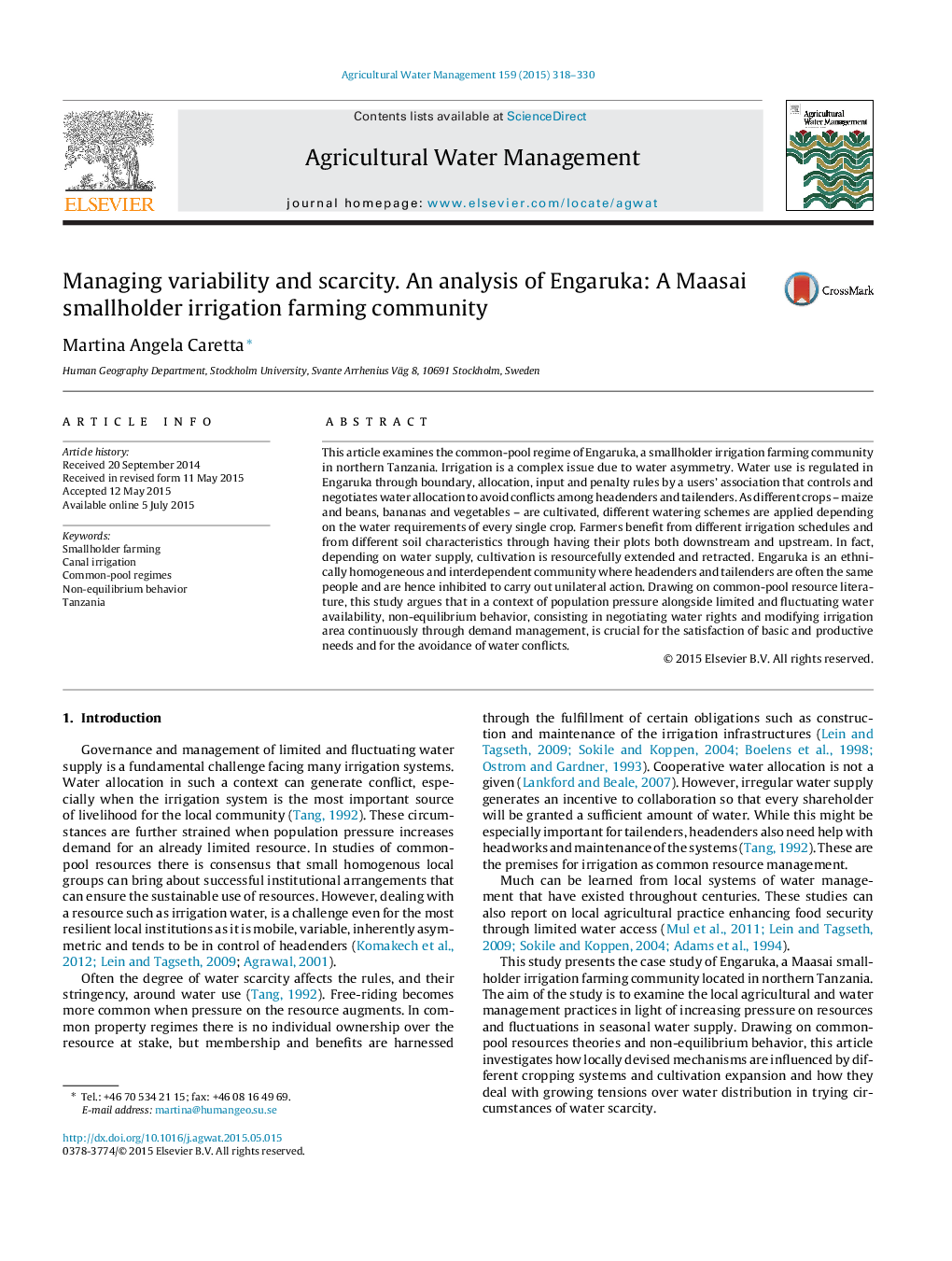| Article ID | Journal | Published Year | Pages | File Type |
|---|---|---|---|---|
| 6363751 | Agricultural Water Management | 2015 | 13 Pages |
Abstract
This article examines the common-pool regime of Engaruka, a smallholder irrigation farming community in northern Tanzania. Irrigation is a complex issue due to water asymmetry. Water use is regulated in Engaruka through boundary, allocation, input and penalty rules by a users' association that controls and negotiates water allocation to avoid conflicts among headenders and tailenders. As different crops - maize and beans, bananas and vegetables - are cultivated, different watering schemes are applied depending on the water requirements of every single crop. Farmers benefit from different irrigation schedules and from different soil characteristics through having their plots both downstream and upstream. In fact, depending on water supply, cultivation is resourcefully extended and retracted. Engaruka is an ethnically homogeneous and interdependent community where headenders and tailenders are often the same people and are hence inhibited to carry out unilateral action. Drawing on common-pool resource literature, this study argues that in a context of population pressure alongside limited and fluctuating water availability, non-equilibrium behavior, consisting in negotiating water rights and modifying irrigation area continuously through demand management, is crucial for the satisfaction of basic and productive needs and for the avoidance of water conflicts.
Related Topics
Life Sciences
Agricultural and Biological Sciences
Agronomy and Crop Science
Authors
Martina Angela Caretta,
